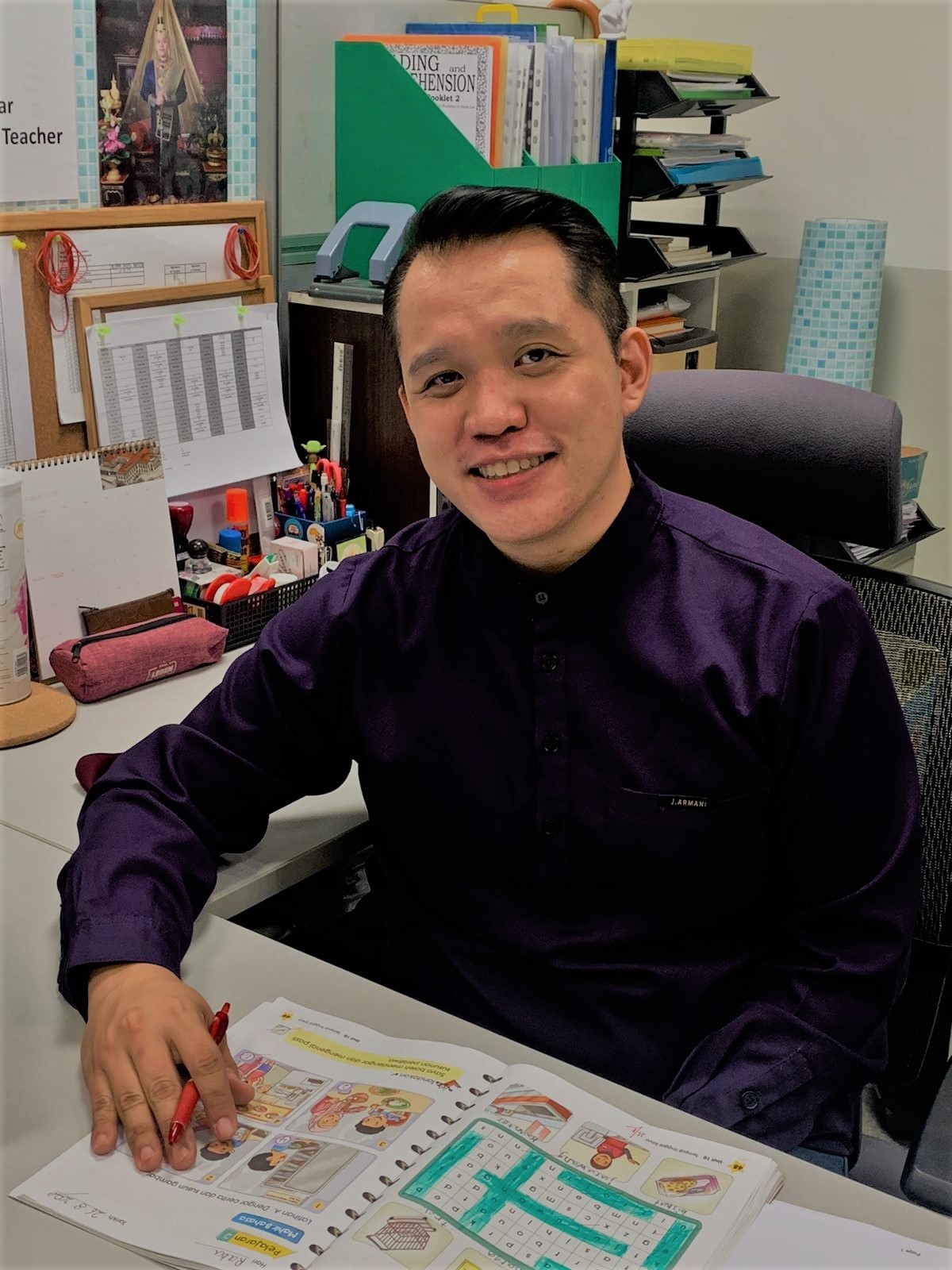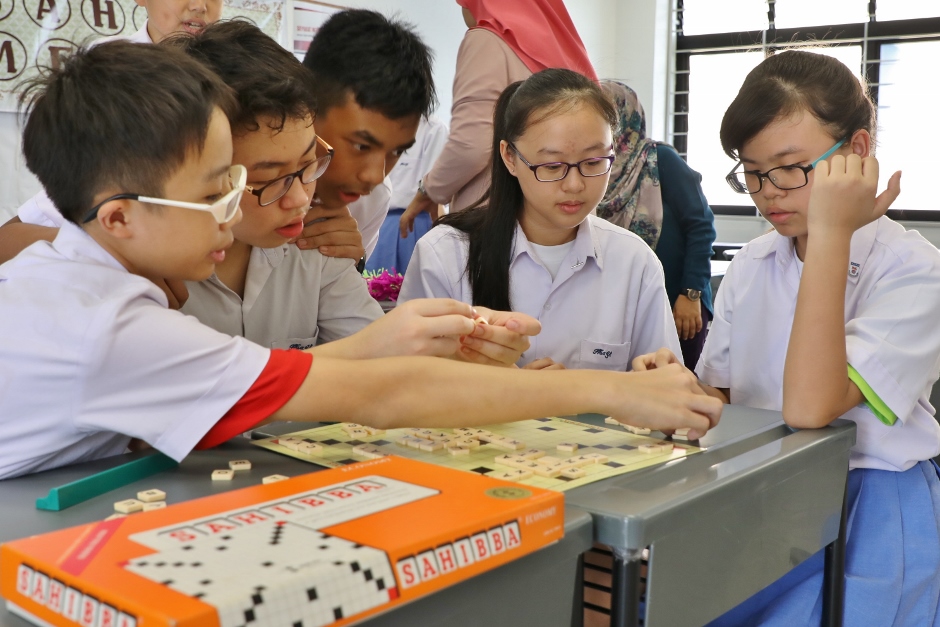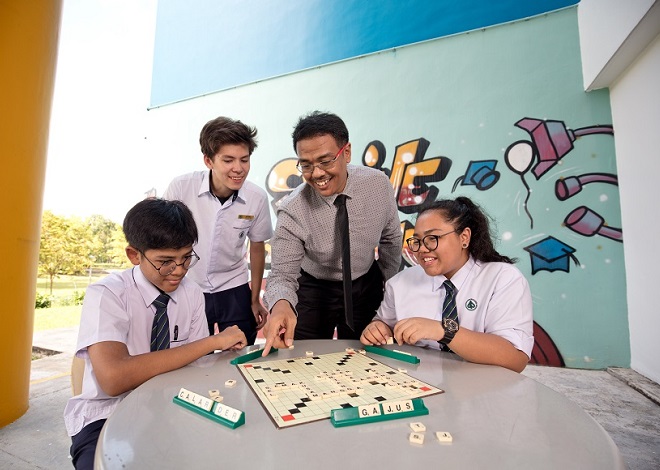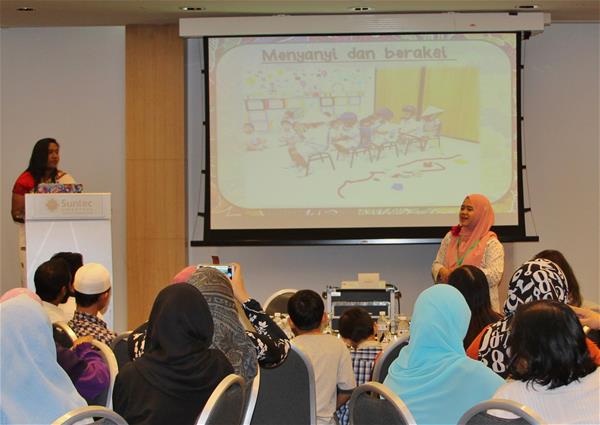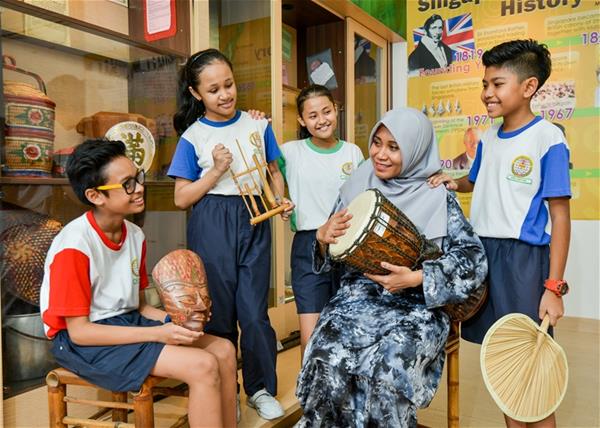Mastering a Third Tongue for a Regional Outlook
01 Oct 2007
Malay and Bahasa Indonesia – these are two languages that we may hear more students speaking in the near future. At the National Day Rally 2007, Prime Minister Lee Hsien Loong spoke about how Singaporeans need to equip themselves early with the necessary knowledge and skills to effectively engage regional and global counterparts. In particular, Singaporeans should make the effort to learn Malay and Bahasa Indonesia to better understand our neighbours and seize the opportunities available in the region.
Under the Malay Special Programme (MSP) which was introduced in 1986, non-Malay students can study Malay as a third language; while the Chinese Special Programme (CSP) was added in 2004 to allow non-Chinese students the same opportunity. Every year, 300 Sec 1 students sign up for MSP, while 200 Sec 1 students sign up for CSP.
However, as PM Lee noted, these figures could be higher considering the value and relevance of the languages, compared to more traditional third languages of choice like French or German. (1,200 Sec 1 students sign up for Japanese, German or French every year.) As a case in point, Singapore’s trade with Malaysia and Indonesia comes in far ahead of trade with Japan, France or Germany.
Hence, to make the learning of Malay and Chinese as third languages more attractive, from next year, two bonus points for junior college entry will be given for an ‘O’ level pass in the third language for MSP and CSP students. The scheme, which will apply to next year’s Secondary 4 students, can also be used in lieu of a humanities subject for their L1R5 (first language plus five relevant subjects) aggregate score.
A new Regional Studies Programme (RSP) will also nurture a group of students comfortably conversant in Malay or Bahasa Indonesia, and who possess an understanding of the culture and current developments in the region. Together with the MSP, this will help groom a segment of non-Malays in each generation who can effectively engage the region in future.
At least four schools – Anglo-Chinese School (Independent), Raffles Institution, Raffles Girls’ Secondary School and Victoria School – will be offering the RSP from 2008. An estimated 120 students are expected to sign up each year to read Malay or Bahasa Indonesia as a third language, as well as study Southeast Asia culture and current affairs.
Up to 100 scholarships will also be awarded each year to students in the RSP. The scholarship will include subsidy of school fees, an annual allowance of $1,000 and sponsorship for regional immersion programmes.
These measures (RSP, MSP and CSP) build on MOE’s on-going efforts to promote conversational Malay and Chinese among students, and its bilingual policy as a strategic edge. They will equip young people with the language skills to engage the world, and also help to further strengthen Singapore’s multi-racial compact in the long run.
Read the MOE press release on the enhancements to the MSP and CSP for more information.

